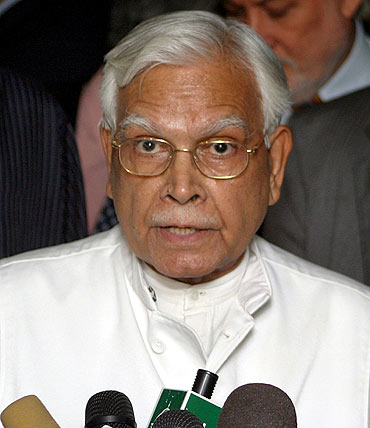
He was the IFS officer assigned to Dwight D Eisenhower, the first United States president to visit India.
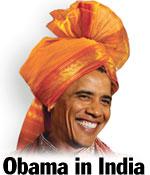
In this exclusive interview, Natwar Singh, India's external affairs minister when Prime Minister Manmohan Singh made his historic visit to Washington, DC in July 2005, tells Rediff.com's Sahim Salim why India should not expect much from US President Barack Obama's visit to India..
Please click NEXT to read the interview.
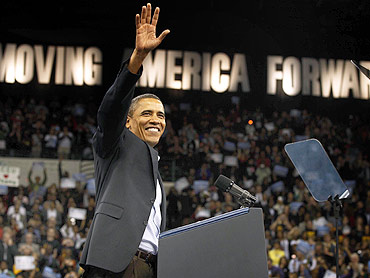
Frankly speaking, I was a bit surprised. I would say the timing is very unfortunate. If I was Obama's advisor, I would have told him, "Mr President, please do it after you come back from India."

I would have advised him against the timing. It only goes to show that the United States gives very high priority to Pakistan.
The US is aware about the recent developments in Indo-Pak relations. Timing is everything in maintaining diplomatic relations and this visit is very unfortunately timed.
What are your expectations from this visit?
Nothing spectacular will come out of this. We should not pin our expectations too high. Having said that, neither should we pitch it too low.
All the work has already been done, everything is ready on paper. I don't think there will be any kind of discordant notes during this visit.
When Prime Minister Dr Manmohan Singh and Obama meet each other in person, they will and should discuss everything, including China, Pakistan, Kashmir and Afghanistan. That, of course, cannot be made public because of their sensitive nature.
We know their views about Pakistan, they know ours. Kashmir also is another issue that is burning right now and I don't think Obama will make a public statement about Kashmir, because he knows it will not be welcomed in India; it is unnecessary.
(Then US president) Clinton made the reference and I had objected to it then. Another thing is the permanent seat veto in the United Nations. We should not have unrealistic expectations from the US about this.
I don't think Obama will make any statement about this because he can't make a statement only about India.
There are countries like Egypt, Brazil, South Africa, Germany, Japan and many others. The Chinese would not like to see us as the single entrant in the UN Security Council because at the moment they represent Asia, Africa and Latin America.
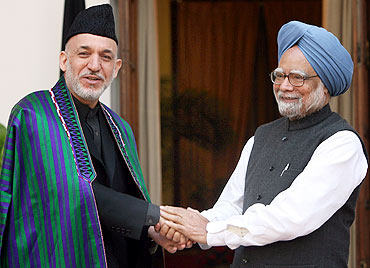
As far as the AfPak situation is concerned, the US needs Pakistan right now because they are stuck in Afghanistan.
We should bring it to Obama's attention that terrorism in India is largely encouraged by Pakistan.

I also think that to make it clear to our Pakistani friends that on the subject of terrorism, America is not going to compromise.
We will also tell them that we want to maintain good relations with Pakistan, but even our goods cannot be transported there via road to Afghanistan or Central Asia.
The fact of the matter is that Pakistan does not want India to play a role in Afghanistan. This is wrong, because we have a long association with Afghanistan.
In the first 20 years of their independence, they (Afghanistan) were closer to us than Pakistan.
We have four consulates and an embassy there. So obviously we do have our interests there.
Whether or not Pakistan is there, we are going to take an interest in Afghanistan. And this should be conveyed to Obama.
As far as China is concerned, my view is that Indo-US relations should stand on its own. It should not be concerned with Sino-US relations or Indo-China relations; they should not be mixed.
China's reality is apparent to everyone, including the US. There should not be an impression that India and the US are getting together because of China. That will expose our weakness.
We are a huge power now, so we should believe in it. In this particular case, if we become America's younger brother, then it gives a wrong message.
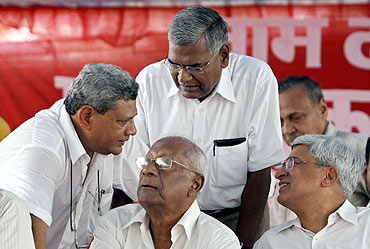
The Left has, however, said it will not boycott Obama's parliamentary address.
Why is it different from what they did during President Bush's visit?

Because they have a much smaller presence in Parliament! They used to have 63 seats, and now they are just 29.
The last time they refused to entertain (then US president) George Bush's parliamentary speech, because they had the numbers behind them.
It is not like that this time. I don't think it is because they have a soft corner for President Obama.
I doubt if their all India protests will work out. Even announcing protests is just a symbolic gesture to maintain their image in my opinion.
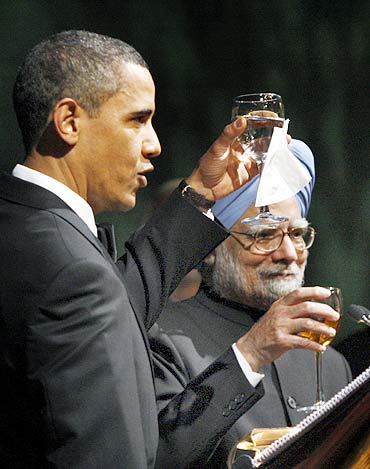
Because of the state of the American economy, the US needs us.
President Obama is bringing 250 CEOs with him and they know India is the way to go.
India is democratic, English speaking and we have a long standing multi-dimensional relationship with the US --- be it defence, science and technology or space.

The US is our largest trading partner, but the US is seeing that Sino-Indian trade is catching up very fast. So Obama's visit is a conscious one.
But we have to realise that India and US are strategic partners, not allies, as (then prime minister) Atal Bihari Vajpayee once said.
When I was the foreign minister, I had opposed this view (that India and the US are allies).
India is a country with independent foreign policies. We cannot be allies of countries which promote military blocs.
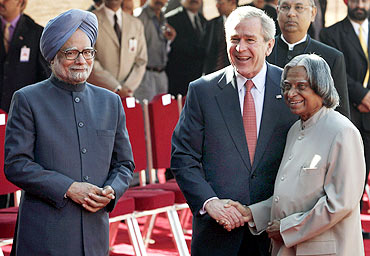
I was a very junior officer then, so I was not involved in any policy discussions. But there are many things to remember about Eisenhower's visit.
One, he got a huge reception from India. One million people had come to see him at the Ram Leela grounds (in New Delhi) to see him. He did not come with 10 planes and 6,000 people.
(Then prime minister) Jawaharlal Nehru and Eisenhower drove to Rashtrapati Bhavan in an open car.
He did not stay in a hotel, but at Rashtrapati Bhavan. When Eisenhower visited, it was a visit of goodwill.
Indo-US relations deteriorated during (then US president Richard) Nixon's tenure. What went wrong and how far have we come?
Nixon visited in India in 1969, but he did not even stay for 24 hours, which does not officially make a State visit.
Relations between (then prime minister)Indira Gandhi and Nixon were very strained; they did not like each other.
She got liberal America, Europe and the international media on her side, which in itself was a great achievement.
Then (US president Jimmy) Carter came, which produced absolutely nothing. The early years of the (Bill) Clinton administration were the worst time for Indo-US relations.
After India started introducing economic policies in 1991, relations improved. But then we conducted a nuclear test after which Clinton hit the roof.
We went ahead with a second nuclear test and Clinton realised there was nothing he could do about it.
He visited in India in March 2000 and got a huge reception.
Indo-US relations improved and then Bush built on this. As far as American presidents are concerned, George W Bush was the best US president. He fell in love with India and he shared a very good equation with Manmohanji.
After Bush came, he also saw that India was the place to be in. He was too committed towards Indo-US relations. I don't know if Obama is as committed.
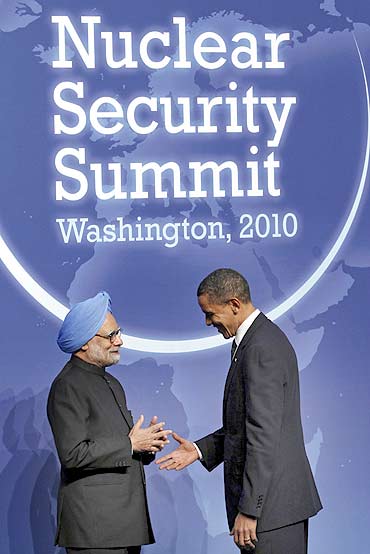

The US gained more out of the nuclear deal than we did, but no harm has been done.
The US kept shifting the goalposts and we kept accepting the changes. They did it very cleverly and subtly.
There was strong opposition in Parliament because of this. The government was asked why we kept accepting the changes proposed by the US. The government did not have an answer for this.
If the Bahujan Samaj Party had not extended support, the government would have fallen.
But all said and done, we have also gained from this, so it was a mutual deal.